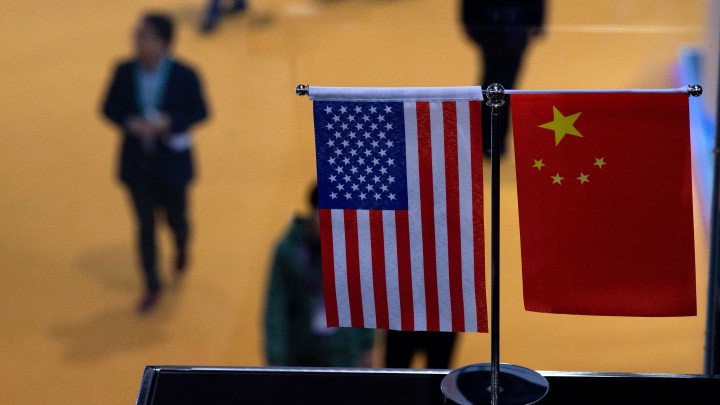
U.S.-China phase one trade deal: It’s alive, but is it well?
U.S.-China phase one trade deal: It’s alive, but is it well?

Speakers at the Republican National Convention Tuesday night held up the president’s phase one trade deal with China as a major accomplishment. Secretary of State Mike Pompeo lauded it in his convention speech. U.S. and Chinese officials made a point of having a phone call Monday night to announce their commitment to the deal.
But is the agreement actually functioning as promised? Chad Bown, senior fellow at the Peterson Institute for International Economics, has been watching this closely. The following is an edited transcript of his conversation with “Marketplace Morning Report” host Sabri Ben-Achour.
Sabri Ben-Achour: So we had, even just yesterday, U.S. and Chinese officials say, you know, this trade deal is alive and well. You have the data on how it’s going. How is it actually working out?
Chad Bown: Well, I think it’s good news, bad news. The good news is there is still a trade deal in effect. So we’ve, you know, stopped imposing tariffs on each other. But the tougher news is that they had set these really large targets for how much China was expected to buy, in terms of U.S. exports, over the next two years. Seven months through 2020, and, you know, we’re only about 28% of the way through what they expected China to buy this year. So it’s not looking good in terms of the targets.
Ben-Achour: It is called a phase one trade deal, meaning there are phases yet to reach. This trade deal, you know, was about how much China’s buying from the U.S. It doesn’t talk about intellectual property, it doesn’t talk about a lot of other issues. When are those issues going to get dealt with?
Bown: So that’s the big question. The Trump administration hasn’t yet started negotiating on the really substantive issues with China that includes China’s system of subsidies, its large, state-owned enterprises — these big state-run companies that make it much less market-oriented than we might otherwise like it to be. None of those issues were tackled in phase one. And they’ve really yet to start talking about them at all, in terms of the phase two.
There’s a lot happening in the world. Through it all, Marketplace is here for you.
You rely on Marketplace to break down the world’s events and tell you how it affects you in a fact-based, approachable way. We rely on your financial support to keep making that possible.
Your donation today powers the independent journalism that you rely on. For just $5/month, you can help sustain Marketplace so we can keep reporting on the things that matter to you.

















